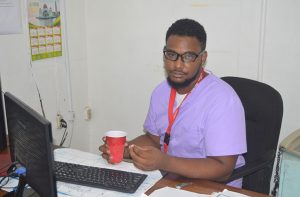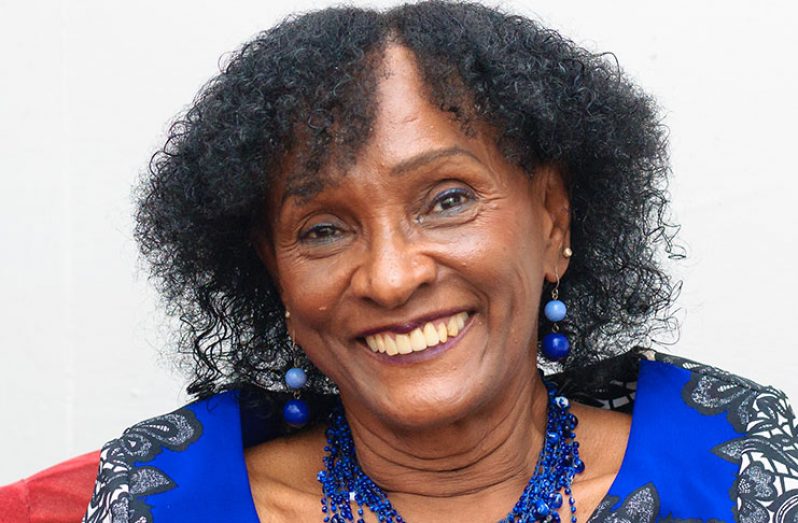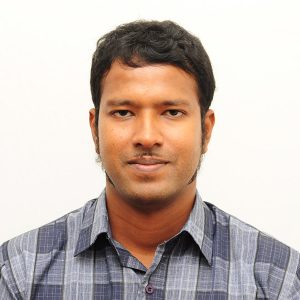— Foundation urges persons with condition to see a doctor and not religious leader
NOT much is often heard about epilepsy in Guyana, largely because it is not a condition that is endemic here, and the cases that do occur, seldom if ever, gain the spotlight except in cases that result in death.
Epilepsy is a chronic disorder of the brain, and according to the World Health Organisation (WHO), it is characterised by recurrent seizures, which are brief episodes of involuntary movement.
It may involve a part of the body or the entire body and sometimes, it is accompanied by the loss of consciousness and the control of bowel or bladder functions.
The WHO explains that the seizure episodes are as a result of excessive electrical discharges in a group of brain cells, and pointed out that different parts of the brain can be the site of such discharges.
Seizures can vary from brief to severe and prolonged convulsions and in terms of frequency, can vary from one per year to several per day.

One seizure is not an indication of epilepsy since about 10 per cent of people worldwide have one seizure in their lifetime, the WHO said, elaborating that the condition is evident when a person experiences two or more unprovoked attacks.
These often result in temporary loss of awareness and disturbances of movement, sensation, mood or other cognitive factors.
In Guyana, while there are a number of cases, there is no national data collection on epilepsy, even though the condition affects both the young and old.
And when it happens, it could be a temporary knockout blow.
Christopher France, 23, told then Guyana Chronicle that his first seizure occurred when he was 13, the second at 20, followed by multiple occurrences.
On most of these both occasions, he could vaguely remember what happened to him.
“I cannot fully remember what happened, during the last attack I was in bed and I fell asleep following the attack and when I woke up, I had another attack, and I fell asleep again.”
For La Quanza Williams, a dental student at the University of Guyana (UG), her experience was a little worst.
WOKE UP IN HOSPITAL
“One month ago I was in Church’s Chicken eating ice-cream when I suffered an attack. All was going well when I felt light-headed, my vision started to get blurred and all I could remember after was that I fell to the ground. When I woke up, I was in the hospital,” related Williams.
That was one of several attacks she had suffered since she experienced her first in 2015.
France said his experiences drove him to join the Epilepsy Foundation of Guyana, an organisation founded by Dr Thomas Singh, a professor of economics at the University of Guyana (UG), who was an epileptic in his younger days.
The Epilepsy Foundation of Guyana was formed in 2014, and since coming on stream it has been at the forefront in advocating for care and treatment of persons with epilepsy, as well as raising awareness of the illness.
France also pointed out that aside from better care and more awareness on epilepsy, central to the work of the foundation is the dispelling of some of the myths associated with the illness.
“People still believe that persons with epilepsy are demon-possessed or mad, and some instead of taking these persons for medical attention, they are taken to religious leaders, which is really unhelpful,” he lamented.

Because of the gross lack of awareness, some people with epilepsy are neglected by their family, who believe that they are possessed by evil spirits.
Sara Scott, who is a director of the Epilepsy Foundation of Guyana, said the “evil” or “demonic” possession belief is not the only myth associated with epilepsy.
“The majority of people do not know how to handle epilepsy cases. There is a very common remedy that people believe would work, and this involve putting a spoon in the mouth of people who are getting a seizure. This could do more harm than good to the affected person since there is great danger in this, in that the affected person can suffer damage to the teeth or choke on the spoon.”
Both Scott and France, who are final year UG medical students, explained that people at the time of the attack do not have control of their movements, and if they happen to bite their tongue, they might choke on their blood.
To prevent such eventuality, the medical students noted that it is advisable that affected persons be put on their side, pointing out that if they do bit their tongues, the blood will seep through at the side of their mouth.
DO NOT HOLD DOWN
“Holding down an epileptic person is never advisable since it can result in injuries, fractures and dislocations. What is advisable is that the surroundings of a person suffering an attack should be cleared, especially of any sharp object and body of water,” France said.
In recent years, there have been cases of epileptics drowning.
In June 2012, Harry Booday of Lima Housing Scheme, Essequibo Coast, drowned in his flooded yard after suffering a seizure, and in September 2015, Romona Thomas, a mother of two, also drowned in the Lower Pomeroon River when she suffered an attack while washing clothes.
France emphasised that epileptic attacks should not be taken lightly. He advised that if the shaking and seizures last for more than five minutes, the ambulance should be summoned as the patient’s condition at that time will require medical attention.
This, he said is necessary for the good health of the patient, even as he pointed out that epilepsy is a condition with probably the most myths attached to it.
Unlike what some people believe, he said the illness is not a mental health issue but a neurological condition with common symptoms which include fidgeting, shaking, staring into space, repetitive movements, inattentiveness and daydreaming.
IMPINGEMENT
In students, the condition may impinge on their learning depending on how it is treated, Cynthia Massay, a rehabilitation officer at the Ptolemy Reid Centre said, while noting that it does not affect the capacity of the learner.
“In fact, some of the people who are affected are well-educated people. The problem we have is, that schools tend to avoid accepting epilepsy students and this happens mainly because parents and teachers know little about epilepsy, and as such, they do not know how to respond to these cases. It is for this reason that the education of the affected child is delayed,” Massay said.

The Ptolemy Reid Centre helps in the treatment of persons with epilepsy as well as other forms of disability, and teaches parents and educators of ways to tackle the condition. Treatment is also provided at hospitals and some health centres.
Since the formation of the Epilepsy Foundation of Guyana, more than 100 cases have been referred to doctors both at private and public health institutions.
Some of these patients are treated by Dr Malika Mootoo, who said the majority of them are children, and some of the cases are severe.
Epilepsy is not contagious, and the condition that affects most people is called idiopathic epilepsy which has no identifiable cause. Symptomatic epilepsy on the other hand has identifiable causes and these include brain damage from prenatal injuries, congenital abnormalities and severe head injury.
Treatment in Guyana is not always easy. From time to time there are shortages of anti-epilepsy drugs, and with only one neurologist in Guyana, cases are tended to by general physicians who dispense treatment to the best of their ability.
France, Scott and Dr Mootoo told this publication that the local health system is not well-equipped to treat epilepsy cases, and that the Epilepsy Foundation has been making diligent efforts to help affected persons.
Early detection of epilepsy is essential to avoiding an attack and the Foundation will soon be acquiring an Electroencephalography (EEG) machine to help in this regard. The machine will be the first in Guyana.
This aside, the foundation has been able to get a US neurologist to come here and treat affected persons, as well as train health personnel to handle epilepsy cases.
It is also in the process of establishing a data base of epilepsy cases in Guyana, and in the meantime members have established a social networking group, which facilitates the sharing of information and advice among affected persons.
In addition, the Foundation has been visiting schools and other organisations to raise awareness about epilepsy.
On their part, both France and Williams told Guyana Chronicle that they have been able to cope with the illness through the support of their families and friends and taking their mediations as prescribed by their doctors.
France, who is a director of the Foundation, also advised that persons who suffer epilepsy attacks must seek professional help.
“When you get an attack, it is best in the interest of your health that you call your doctor and not your pastor,” he urged.




.png)









